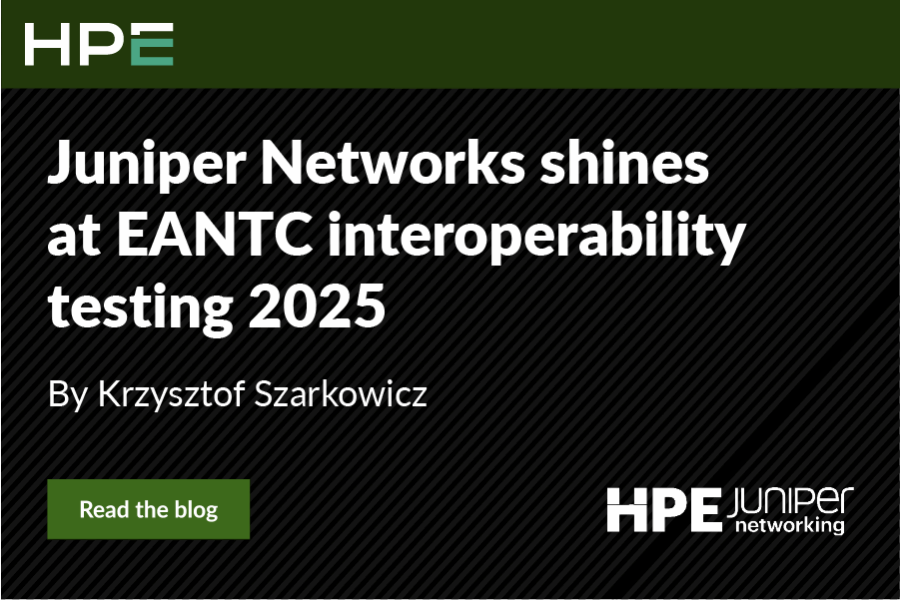The quantum internet is poised to revolutionize how we communicate, compute, and secure data. By leveraging the principles of quantum mechanics, it will enable unparalleled capabilities that extend beyond the reach of today’s classical systems, accelerating the pace of transformation across various sectors, including cybersecurity, finance, healthcare, agriculture, telecommunications, and industrial automation—just to name a few.
While the potential is nearly unlimited, developing quantum technologies is resource intensive. It will require significant financial, intellectual, and technological investments that encompass diverse scientific and engineering disciplines. And, as with any new technology, success will require the seamless integration of new quantum devices with existing networks, enabling scale around the globe.
The importance of collaboration, standardization, and knowledge sharing
Achieving the vision of a quantum internet will require collaboration to drive standardization for common protocols interfaces and benchmarks that will facilitate the seamless integration of quantum devices and networks globally. These collaborative efforts will help ensure that the benefits of quantum technologies are widely distributed, addressing global challenges and opportunities.
Enabling the rapid advancement of quantum technologies will continue to rely on the open exchange of knowledge. This is where collaborative organizations like the Quantum Internet Alliance (QIA) will play a key role.
This is why I am excited to announce that Juniper Networks has recently joined the QIA, enabling our Juniper Beyond Labs research and engineering teams to collaborate with a broad ecosystem of partners to advance our vision for a quantum internet.
The Quantum Internet Alliance: A mission for the future
The QIA is at the forefront of this groundbreaking endeavor. Launched as part of the European Union’s Quantum Flagship initiative, the QIA aims to lay the foundation for a pan-European quantum internet. This expansive network will leverage the principles of quantum mechanics to provide ultra-secure communication, enhanced computing capabilities, and new opportunities for scientific research and innovation.
Recognizing that no single entity could achieve this ambitious goal alone, the QIA fosters partnerships, bringing together leading academic institutions, research centers, and industry partners to collaborate on developing the necessary technologies and infrastructure. The alliance’s diverse members bring together expertise in quantum physics, engineering, computer science, and telecommunications, creating a rich environment for innovation and discovery.
Quantum Internet Alliance Technology Forums
 To advance its mission, the QIA recently initiated the Quantum Internet Alliance Technology Forums (QIATF). These forums serve as a platform for sharing the latest research findings, technological advancements, and practical implementations in quantum networking. Participants include scientists, engineers, policymakers, and industry leaders who collaborate to address the challenges and opportunities in building the quantum internet.
To advance its mission, the QIA recently initiated the Quantum Internet Alliance Technology Forums (QIATF). These forums serve as a platform for sharing the latest research findings, technological advancements, and practical implementations in quantum networking. Participants include scientists, engineers, policymakers, and industry leaders who collaborate to address the challenges and opportunities in building the quantum internet.
The Technology Forums cover various topics, including Quantum Key Distribution (QKD), entanglement generation and distribution, quantum error correction, and the development of quantum repeaters. By bringing together diverse stakeholders, these forums facilitate the free exchange of ideas, promote standardization efforts, and accelerate the translation of theoretical research into practical applications.
Juniper Networks: Bridging the classical and quantum internet
Juniper Beyond Labs resources will participate in the QIATF to help shape the future of quantum networking. With its extensive experience in building and managing complex network infrastructures, Juniper is well positioned to contribute to the development of the quantum internet.
Juniper Beyond Labs’ involvement underscores the importance of integrating classical and quantum networks. While quantum communication offers unprecedented security and computational power, classical networks will continue to play a crucial role in supporting and complementing quantum technologies. By participating in QIA, Juniper aims to leverage its expertise in routing and network management to develop solutions that facilitate the seamless integration of classical and quantum networks.
Conclusion
The road toward the quantum internet is paved with exciting possibilities and formidable challenges. Understanding the fundamental principles of quantum mechanics and their application in quantum networking is the first step towards realizing this vision. The QIA, with its mission to build a pan-European quantum network, exemplifies the power of collaboration in advancing this cutting-edge technology.
Juniper Networks’ participation in QIA highlights the critical role of classical network expertise in bridging the gap between current and future communication technologies. As we move forward, the importance of collaboration, standardization, and knowledge sharing cannot be overstated. By working together, we can unlock the full potential of the quantum internet, transforming how we communicate, compute, and secure our digital world.
To learn more about Juniper Beyond Labs and our quantum internet initiatives, please visit us at www.juniper.net. Interested in participating in this exciting journey? Contact us at [email protected].

























